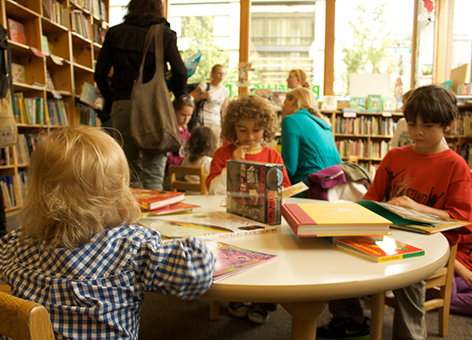What Are Kids Reading About Oil Spills?
MARCH 14, 2014 -- What are your children and their teachers reading? We might want to pay closer attention. The stories we tell our children are a reflection of how we see the world, and we want to make sure these stories have good information about our world. Dr. Alan Mearns, an ecologist with the Office of Response and Restoration's Emergency Response Division, occasionally accompanies his wife, a preschool teacher, to local children's bookstores, and more often than not, finds books about oil spills and other disasters. Recently, he took a closer look at the quality of the information found in a sampling of children's books on oil spills.

An Oil Spill Ecologist Dives into Kids' Books
So far, the eight or so books Mearns has looked at focus on one of the two major oil spills in the American mind: the 1989 Exxon Valdez oil spill in Alaska or the 2010 Deepwater Horizon spill in the Gulf of Mexico. A number are heart-warming stories about wildlife speaking about their experience in oil and the nice people who captured, cleaned, and released them. Birds, especially pelicans, and sea otters often play a starring role in telling these stories. Several present case histories of the oil spills, their causes, and cleanup. Some books place oil spills in the context of our heavy reliance on oil, but many ignore why there's so much oil being transported in the first place. One book's color drawings show oil spill cleanup methods so well you can actually see how they work—and which Mearns thinks could even be used in trainings on oil spill science. Something that may not be top-of-mind for many parents but which he appreciates is the presence of glossaries, indices, and citations for further reading. These resources can help adults and kids evaluate whether statements about these oil spills are supported by reliable information or not.
Reading Recommendations
When reading a book—whether it is about oil spills or not—with kids you know, keep the following recommendations in mind:
- Make sure the story informs, as well as entertains.
- Ask where the "facts" in the story came from.
- Look for reputable, original sources of information.
- Ask why different sources might be motivated to show information the way they do.
- Talk to kids about thinking critically about where information comes from.
Learn more about the ocean, pollution, and creatures that live there from our list of resources for teachers and students. Photo: Carolien Dekeersmaeker/Creative Commons Attribution-NonCommercial 2.0 Generic License
